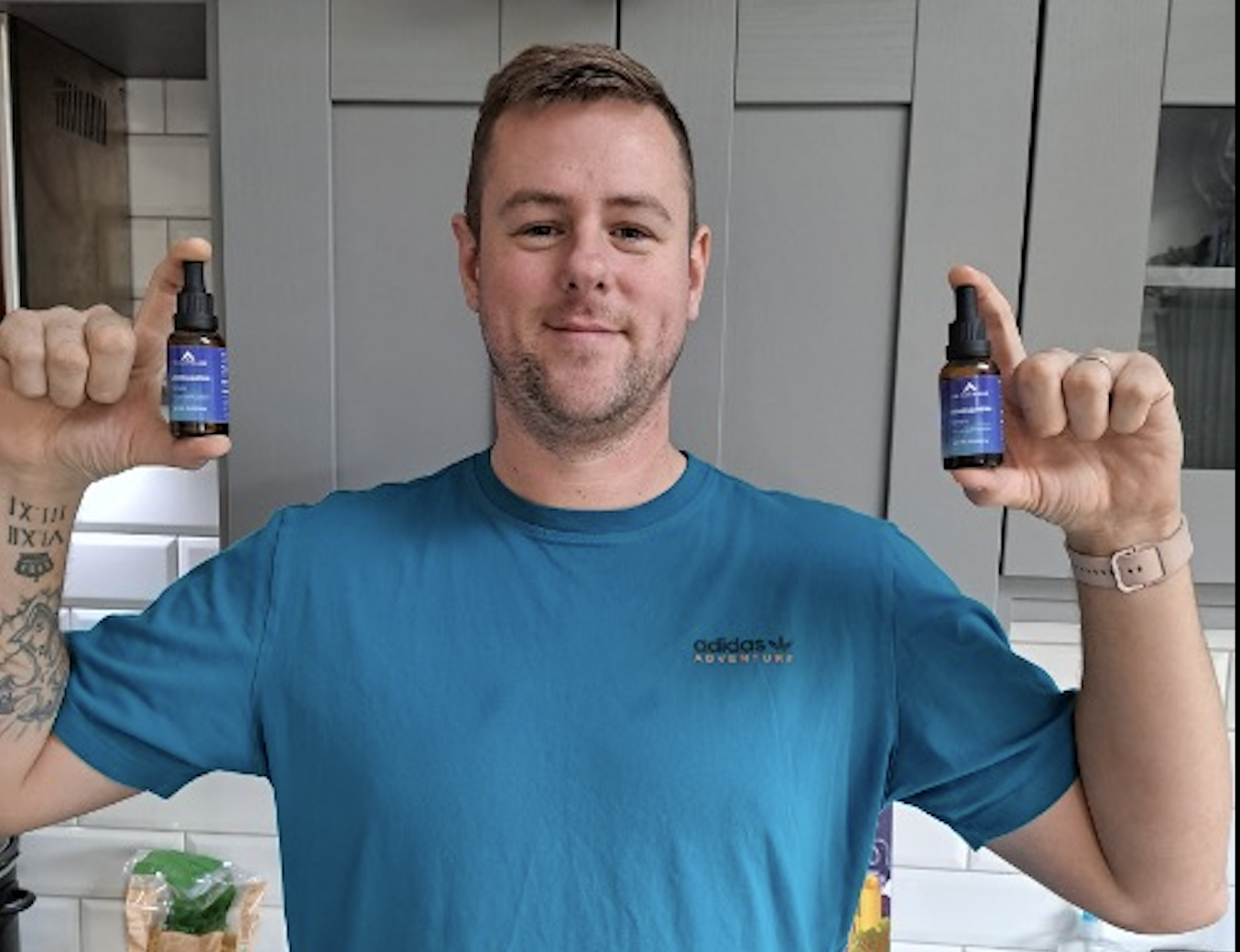In the market of herbal supplements, the blend of CBD, Tulsi, and Ashwagandha, in a calming tea, is a method that is becoming very popular for relaxing the mind. This post covers the advantages of these particular supplements, their cooperation with eachother through the entourage effect, and more.
We also give you a detailed recipe to make your very own CBD Tulsi Ashwagandha Tea! Let’s start.
UNDERSTANDING THE KEY INGREDIENTS
CBD (CANNABIDIOL)
CBD, a non-intoxicating compound from hemp plants, is known for its potential in helping the endocannabinoid system (ECS) to keep the body balanced and to promote relaxation and stress relief.
TULSI (HOLY BASIL)
Tulsi, which is also called Holy Basil, is honored in Ayurvedic medicine for its adaptogen qualities – the ability to help the body adjust to stress and to encourage mental equilibrium.
ASHWAGANDHA
Another powerful adaptogen is ashwagandha, which is known for increasing energy, decreasing stress, and improving the quality of sleep. The Ashwagandha product of Dr. Hemp Me provides a 100% pure and potent supplement that is great for making tea.
BREWING CBD TULSI ASHWAGANDHA TEA: A BLUEPRINT
Here are the ingredients you will need:Here are the ingredients you will need:
- 20-30 drops of Dr. Hemp Me Ashwagandha Drops
- A couple of drops of CBD oil
- 1 teaspoonful of Tulsi leaves dried
- Honey or sweetener (optional)
- 1 cup of boiling water of course
Here are the instructions:
- Prepare the Herbs: Mix the Ashwagandha powder and dried Tulsi leaves in teapot or infuser.
- Add Boiling Water: Add one cup of boiling water to the herbs. Let the mixture stand for 5-10 minutes to get all the flavor and benefit.
- Add CBD Oil: After the tea has been brewed, pour 1-2 drops of CBD oil in it. Blend thoroughly to achieve a uniformly distributed CBD oil.
- Sweeten to Taste: Optionally, sweeten with honey or another sweetener to improve taste.
- Enjoy: Sip the tea in a relaxed pace letting your body and mind absorb its soothing and balancing effects.
SUPPLEMENT SCIENCE & THE HISTORY
When used in tea format, a blend of CBD, Tulsi, and Ashwagandha could offer a range of health advantages in addition to being rich in centuries-old use in traditional medicine. Each ingredient is considered to possess specific characteristics, with recent medicinal studies that have tried to identify the mechanisms of their influence on the human body and mind.
CBD (CANNABIDIOL)
Historical Use
CBD has been used since ancient times, with indications pointing to its use in historical societies for many diseases. Nonetheless, it was only in the 20th century that the scientists started realizing its potential side effects and mechanisms.
Scientific Evidence
The current research has emphasised the interaction of CBD with the Endocannabinoid system (ECS) which is a complex cell signalling system that modulates mood, pain, sleep, and immunological responses.
Research indicates that CBD could aid in relieving stress, enhancing the quality of sleep, and decreasing swelling through ECS modulation but without the psychoactive effects that are related with THC [1]. Even concentration and focus has been a topic of research.
TULSI (HOLY BASIL)
Historical Use
Tulsi, or Holy Basil, is a holy plant in Hindu belief and has been utilised in Ayurvedic medicine for more than 3,000 years. Its use was normally to strengthen the mind, body, and the spirit, the leaves, seeds and oil serving several medicinal functions.
Scientific Evidence
Current researches have confirmed adaptogenic nature of Tulsi, demonstrating its ability to alleviate stress, anxiety and blood sugar levels. Additionally, its antioxidant and anti-inflammatory properties also play a key role in its therapeutic characteristics, making it an effective supplement for general health [2].
ASHWAGANDHA
Historical Use
Ashwagandha is also known as “strength of the stallion” in Ayurveda and it has been used in this medicine system for over 2,500 years because of its rejuvenating and energising properties. It was mostly used as a tonic agent for strengthening the immune system after sickness and also to increase stamina and endurance.
Scientific Evidence
Modern studies on Ashwagandha have been concentrated on its role in reduction of stress and anxiety through lowering the cortisol levels in the human body. It has also been investigated for its ability to enhance cognitive function, boost strength, and alleviate symptoms of different diseases including arthritis and insomnia [3].
THE ENTOURAGE EFFECT EXPLAINED
One of the entourage effect applications is the combined use of CBD and other herbs which suggest the ability of these compounds to work better together.
In such case, the anti-anxiety properties of CBD, the stress-relieving traits of Tulsi, and the cortisol lowering features of Ashwagandha can be combined to provide an even more powerful approach for stress reduction and relaxation.
This synergy allows them to increase their separate advantages and promotes a balanced and holistic approach to health.
MORE READING: CBD FRUIT CHEWS
CHOOSING QUALITY SUPPLEMENTS
If you choose to include CBD, Tulsi and Ashwagandha in your tea select only the best, lab-tested products from reputable sources. This guarantees that you are getting the maximum benefits that can be derived from these supplements.
THE IMPORTANCE OF RESEARCH
Prior to integrating CBD in the Tulsi Ashwagandha tea to your daily lifestyle, it is important to do thorough research. Knowing the interaction between these supplements and your body leads to a safer and more productive process.
DISCLAIMER
CBD oil and other herbal supplements noted are sold as food supplements only and not intended to diagnose, cure, treat or prevent any health condition. Always seek advice from a healthcare professional prior to commencing any new supplement regimen.
CONCLUSION
CBD Tulsi Ashwagandha Tea is an integrative method of well-being that amalgamates the remedial gains of the potent supplements to yield a calming, stress-relieving beverage. With the help of the detailed recipe and the purchase of the best quality supplements, one can rely on the natural way of the support of physical and mental health.
REFERENCES
- Shannon, Scott et al. (2019) “Cannabidiol in Anxiety and Sleep: A Large Case Series.” The Permanente journal
- Sairam, K et al. (2022) “Antidepressant activity of standardized extract of Bacopa monniera in experimental models of depression in rats.” Phytomedicine : international journal of phytotherapy and phytopharmacology
- Jamshidi, Negar, and Marc M Cohen. (2017) “The Clinical Efficacy and Safety of Tulsi in Humans: A Systematic Review of the Literature.” Evidence-based complementary and alternative medicine : eCAM
- Andrade, C et al. (2000) “A double-blind, placebo-controlled evaluation of the anxiolytic efficacy ff an ethanolic extract of withania somnifera.” Indian journal of psychiatry
- Chandrasekhar, K et al. (2012) “A prospective, randomized double-blind, placebo-controlled study of safety and efficacy of a high-concentration full-spectrum extract of ashwagandha root in reducing stress and anxiety in adults.” Indian journal of psychological medicine





















